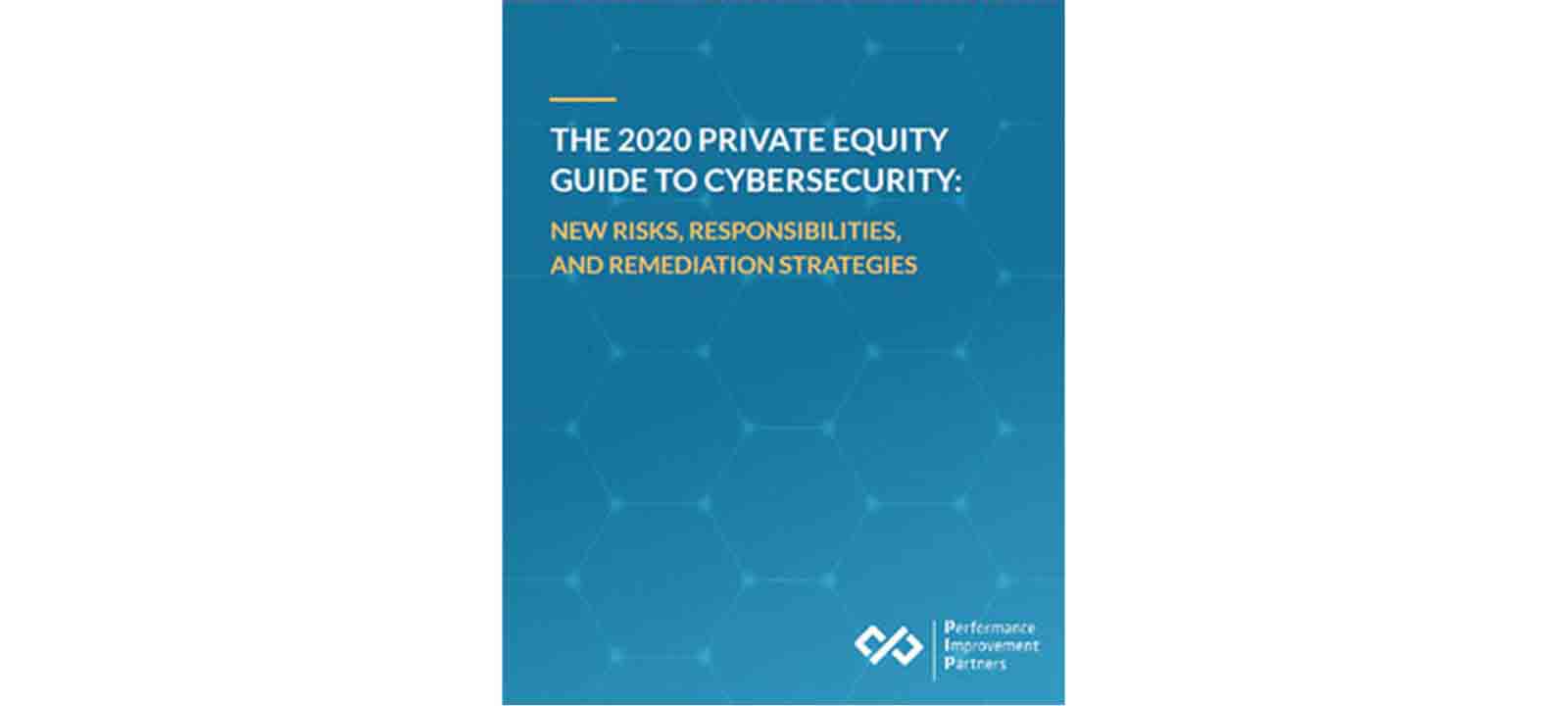The 2020 Private Equity Guide to Cybersecurity: New Risks, Responsibilities, and Remediation Strategies, provides PE firms and their portfolio companies with the insights needed to understand new risks and best practices for protection
SHELTON, CT – AUGUST 6, 2020 – Today Performance Improvement Partners (PIP), which provides value creation services for the private equity sector and their portfolio companies through technology, automation, and security, launched The 2020 Private Equity Guide to Cybersecurity: New Risks, Responsibilities, and Remediation Strategies, a new report outlining the new cyber risks PE firms and their portfolio companies are facing, best practices for mitigating risk, and the new stakes for businesses.
PIP created this new guide to help private equity firms protect themselves and their stable of portfolio companies against the increasing cyber risks they face today. According to the FBI, there has been a 300% increase in cyber crime since the start of the COVID-19 pandemic, while VMWare Carbon Black found that 52% of all cyberattacks in March 2020 were finance-related. With private equity firms currently holding $2.5 trillion in dry powder across funds globally, the sector has quickly become a ripe target for cyber criminals.
The 2020 Private Equity Guide to Cybersecurity: New Risks, Responsibilities, and Remediation Strategies provides private equity investors, owners, and their portfolio companies with the following data and insights:
- The new reality private equity firms face in managing cyber risks;
- New tactics being taken by cyber criminals and the rate at which they are rapidly evolving;
- The increasing notion that no company is safe from a breach, whether a small business, an NGO, or Fortune 500 business;
- The new responsibility for c-suite executives and board members around cybersecurity;
- Strategic approaches to portfolio-wide protection;
- How to create a company-wide defense against cybercriminals.
“The most important thing for business leaders to understand is that not one person or organization is immune to a cyber attack,” said Fred Purdue, Infrastructure Practice Manager at PIP. “In today’s environment, hackers are being extremely aggressive in their attempts to access systems and are changing tactics at an extremely rapid pace, which in the last few months, has led to attacks on some of the largest corporations – and most well-known people – in the world. The risks are simply too high for investors, c-suite leaders, and board members not to be actively involved in cyber risk mitigation efforts.”
“As it relates to the risks for private equity, the data speaks for itself,” said Patrick Donegan, EVP of Growth & Client Services at PIP. “In the first half of 2020, we have experienced a 750% increase year-over-year in portfolio-wide cyber initiatives among our client base, with cyber projects overall doubling in the same timeframe. As global banks have shored up their security, cyber hackers are now moving down the chain and taking aim at the deep pockets and, at times, vulnerable security of firms and businesses within private equity. This guide is designed to educate PE executives, as well as provide them with the critical information needed to bolster security within their firm, as well as their various portfolio companies.”
Download The 2020 Private Equity Guide to Cybersecurity: New Risks, Responsibilities, and Remediation Strategies:

ABOUT PERFORMANCE IMPROVEMENT PARTNERS
Performance Improvement Partners, is America’s leading technology solutions company dealing exclusively within the private equity industry. Headquartered in Shelton, CT, with an infrastructure office in Stamford, CT, PIP offers a number of specialized practices geared to client needs and represents over 230 of America’s most respected private equity firms, and has completed thousands of portfolio company engagements across B2B and consumer categories.



